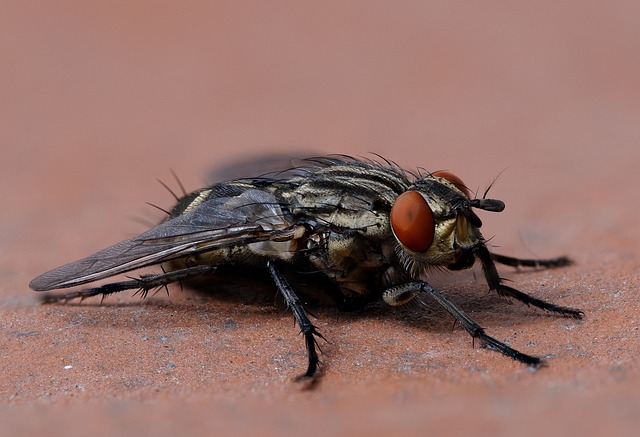Residential fly control is crucial for maintaining a safe, hygienic home environment. Homeowners can prevent flies by identifying entry points and breeding grounds, implementing cleaning and sanitation practices, and using traps or repellents. Recognizing urgent issues like high fly activity, odors, and larvae requires swift action to mitigate infestations. Professional services offer advanced tools for immediate relief, while long-term strategies involve sealing entry points, regular cleaning, and integrated pest management (IPM) techniques to maintain a fly-free space.
Tired of relentless flies invading your home? Discover the power of fast-response services for effective residential fly control. This comprehensive guide breaks down the basics, from identifying urgent fly issues to understanding professional interventions. Learn about swift actions to curb infestations and long-term prevention strategies to keep flies at bay. Implement these solutions for a fly-free haven using proven residential fly control methods.
Understanding Residential Fly Control: The Basics
Residential fly control is a critical aspect of maintaining a clean and healthy living environment. Flies are not just a nuisance; they can carry diseases and pathogens that pose significant health risks to residents. Understanding the basics of residential fly control involves recognizing common entry points, breeding grounds, and effective prevention strategies.
Homeowners should inspect their properties for any gaps, cracks, or openings that might allow flies to enter. Common areas include windows, doors, plumbing vents, and sewer lines. Regular cleaning and sanitation are also essential. Removing organic waste, properly disposing of food, and maintaining a clean environment can significantly reduce fly populations. Additionally, using traps, insecticides, or natural repellents can help manage and control fly activity in residential areas.
Identifying Signs of Urgent Fly Issues in Your Home
Recognizing the signs of an urgent fly issue in your home is crucial for effective residential fly control. Persistent and unusually high fly activity, especially near food sources or garbage disposals, is a clear indication that a problem may exist. Fliers often leave behind a distinct odor and visible clusters around entry points like windows, doors, or cracks in walls.
Examine your living spaces for any signs of fly larvae or maggots, as these can indicate a breeding ground within your home. Pay attention to areas with standing water, such as clogged drains or leaking pipes, as flies thrive in moist environments. Additionally, keep an eye out for fly-related damage, like holes in curtains or chewed materials, which could point to an ongoing infestation.
Fast-Response Services: What to Expect and How They Help
Fast-response services for residential fly control are designed to handle urgent issues promptly, ensuring your home is free from pesky flies as quickly as possible. When you encounter a fly infestation, these specialized services offer immediate attention and effective solutions. Expect swift action upon your call, including an initial assessment to identify the fly species and extent of the problem.
These services employ trained professionals who bring advanced tools and treatments to eliminate flies at their source. They not only provide quick relief from the immediate nuisance but also implement long-term strategies to prevent future infestations. By understanding the behavior and habitats of different fly types, fast-response technicians can offer tailored solutions, ensuring a clean and comfortable living environment for homeowners.
Effective Strategies for Long-Term Fly Prevention After Professional Intervention
After professional intervention for urgent fly issues, implementing effective long-term strategies is crucial for maintaining a fly-free environment in both residential and commercial spaces. The first step involves identifying and sealing entry points where flies might breach the initial control measures. This includes checking for cracks, gaps around windows and doors, as well as any other potential access points. Regular cleaning and sanitation are also key; ensuring all food waste is properly disposed of, maintaining clean surfaces, and eliminating standing water sources that serve as breeding grounds for flies.
Additionally, leveraging the expertise of professional pest control services for regular inspections can help anticipate and prevent future fly infestations. Using residual insecticides or setting up sticky traps around potential entry points offers an extra layer of protection. In residential areas, keeping gardens well-maintained with regular trimming of vegetation and removing decaying organic matter can significantly deter flies from settling in. These integrated pest management (IPM) strategies ensure long-lasting results in the battle against flies, providing a comfortable and hygienic living or working space.
When dealing with urgent fly issues, prompt action is key. Fast-response services offer specialized residential fly control solutions, ensuring your home becomes a fly-free haven again quickly. By addressing the problem at its source and implementing long-term prevention strategies post-intervention, you can maintain a clean, comfortable living space. Remember, understanding these basic concepts empowers you to effectively manage and prevent future fly infestations.
